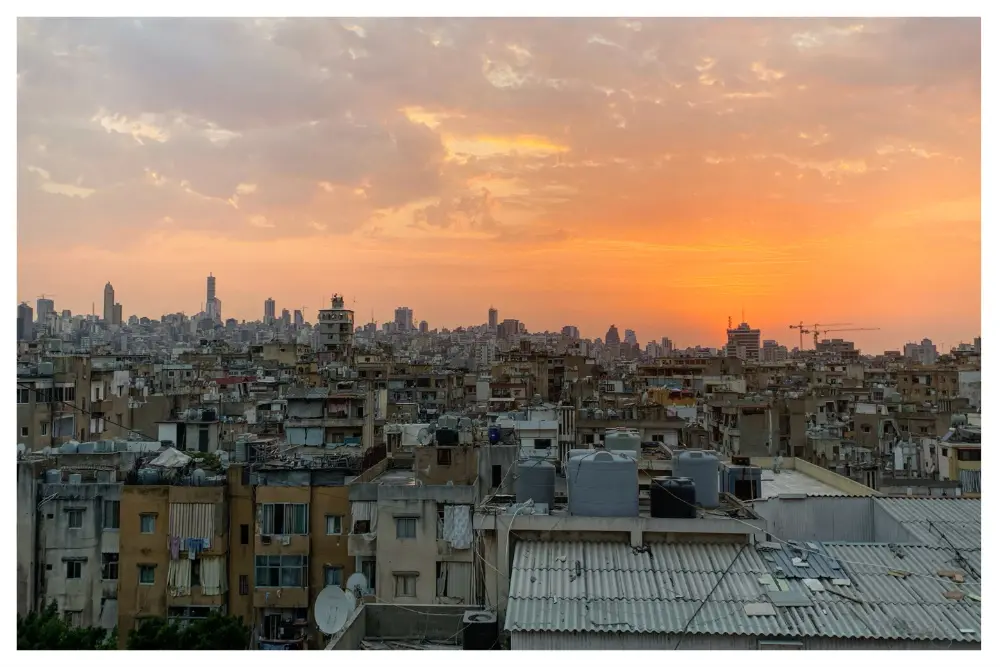Lebanese filmmaker explores chaos and resilience in new film
Five years after triumphing at Venice’s Critics’ Week with his debut All This Victory, Lebanese filmmaker Ahmad Ghossein embarks on his next cinematic journey with his sophomore film, The Side Effects of Trusting Life. This upcoming film delves deep into the heart of Lebanon’s ongoing turmoil and has already gained recognition, winning the Midpoint Consulting Award at the Thessaloniki Film Festival’s Agora Crossroads Co-Production Forum.
Inspiration amidst chaos
“The new film is challenging because of what is going on in Lebanon, but I wrote it before it all,” explains Ghossein. He reflects on Lebanon’s complete economic, political, and social collapse in 2019, which he sees as a stark example of the failings of capitalism and neoliberalism. A striking image of Beirut’s deteriorating banking system amidst the worldwide financial strain sparked his creative process, leading him to craft a narrative infused with dark humor and personal survival instincts.
The poignant storyline
The Side Effects of Trusting Life follows Lama, a young woman who begins experiencing hearing problems due to panic attacks after losing her job during Lebanon’s economic crisis. Advised by doctors to avoid stress-inducing situations, she retreats to her village. However, an ever-spiraling series of events pulls her back into the chaotic heart of Beirut. The film is set to be produced by Lebanon’s Abbout Productions and co-produced by Germany’s Twenty Twenty Vision Filmproduktion and Norway’s DUO film.
Ghossein paints Lama as a reflection of his experiences, stating, “She becomes powerless after losing her job, witnessing the city’s deterioration while others seek an escape. In Beirut, nothing works—there’s no electricity, water, or money. We are prisoners of that incapacity.” The film promises to offer a tangible insight into the chaos through highly choreographed sequences, immersing viewers into this fictional Beirut’s palpable disorder.
A vow reconsidered
Despite his resolve after All This Victory to avoid the subject of war, Ghossein found himself unable to ignore Lebanon’s ongoing crises. Post-Venice, the region faced a series of upheavals: revolution, pandemic, and escalated conflicts with Israel. “The revolution started, then COVID, then the war, so I didn’t have the space to digest what was going on. We need time as filmmakers and space. I need to live to write,” Ghossein reveals.
Yet, with the current climate in Lebanon so intense, Ghossein grapples with whether The Side Effects of Trusting Life is his immediate priority. “If you ask me now: is cinema important? No. There is a war in my country. The priority is to help people.”
Pressures on Arab cinema
Ghossein reflects on the pressures faced by Arab filmmakers to produce socially dramatic narratives that align with Western perceptions of the Middle East. “People want topics from us, not cinema,” he notes, highlighting the expectations to create content that fits a specific narrative for a global audience.
While the Arab world is witnessing an increase in co-productions, new funds, and grants, true creative freedom remains elusive. European producers, despite their growing interest, have not entirely shed the expectation of understanding the region through a lens that infuriates Ghossein: “Even if the word ‘understand’ makes me a little angry.”
Collaboration and synergy
Ghossein values the natural synergy between Greece and Lebanon, particularly with the return of Greek editor Yannis Chalkiadakis, who previously collaborated with him on All This Victory. There is also the potential for filming in Greece if circumstances in Lebanon remain unstable.
However, Ghossein remains resolute about filming authentically. “Greek producers offered to shoot the film here if we weren’t able to shoot next year, but if there is a war in Lebanon, I am not going to shoot anything because I cannot shift my focus and film in Greece as if nothing is happening in my home country. It’s impossible.”
Navigating co-productions
While co-production offers tangible benefits such as grants, rebates, and international collaboration, Ghossein remains emotionally tied to Lebanon. The option to split filming between Lebanon and Greece is on the table. But he passionately asserts, “A space will tell you something, it will talk to you in a different way. I am loyal to the space and to my country.”
As Ghossein navigates the complex landscape of international filmmaking amidst personal and national crises, his commitment to bringing authentic Lebanese stories to the global stage remains unshaken. His films act as a mirror to his country’s struggles and resilience, offering audiences a profound, firsthand experience of Lebanon’s multifaceted reality.
Share this article with your friends and stay tuned for more updates on Ghossein’s latest projects and the evolving world of Arab cinema.

 Italian
Italian







